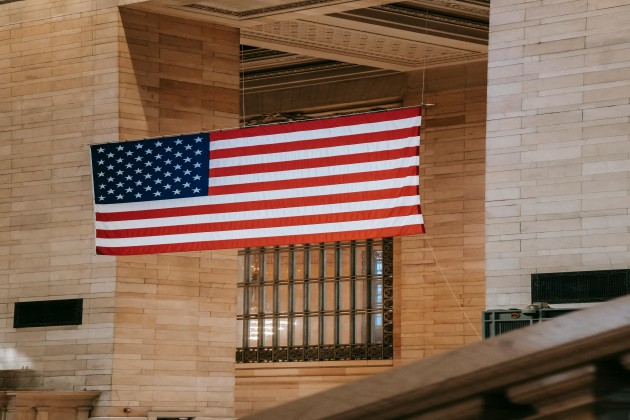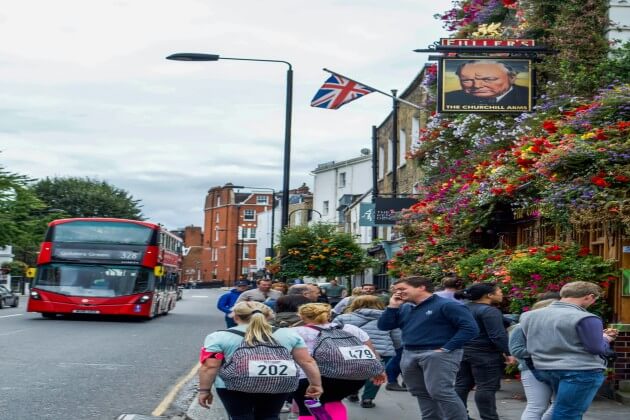How Do I Pass My US Visa Interview

Advertisement
Regardless of whether you are a student, professional, or just have an interest in visiting your relatives to tend to their plight; securing the desired visa is contingent upon good answers at the immigration interview.
An approval or a rejection may depend on how well you prepare. We’ll provide you with the best preparation advice for a USA visa Interview and how to prepare.

How to Prepare For US Visa Interview
Below is a guide on how to prepare yourself before a USA visa interview:
1. Research And Understand Your Visa Type
Before you schedule your interview, ensure that you are aware of the visa category under which falls. There are standards for every type of visa.
Advertisement
Familiarize yourself with the particulars of your visa type so that you can ensure that its objective and what is intended aligns.
Studying before the interview can also prepare you in a better manner and make you look more confident.
2. Anticipate Language Barriers
English will be used during your interview. You must be fluent in conversational English in order to have a coherent communication with the consular officer.
If at all feasible, engage in natural English conversation with native speakers; nevertheless, avoid pre-writing responses.
3. Compile A Well-Organized Document File
Take things a little farther, put together the necessary documents in some kind of order either inside a file or inside a folder.
There will be a time when this organization is going to help you present the documents in an effective manner during the interview.
Remember that consular staff workers are under time pressure, so making sure your paperwork is easily provided for will help you create a good image.
4. Establish Ties To Your Home Country
A non-immigrant visa can be secured with the support of close relations with your country of origin.
Get ready with proof of your desire to return, such as a letter from your employer saying your job would be there for you when you return, or proof of family ties or property ownership.
5. Practice Calmness And Positive Body Language
Consular staff members will watch your behavior in addition to listening to what you have to say. Engage in calm and constructive body language exercises with a friend or in front of a mirror.
This entails speaking clearly, keeping eye contact, and refraining from fidgeting.
6. Pay The Visa Application Fee
Pay the non-refundable visa application cost prior to your interview. Typically, this costs $160, but the precise number may change.
Upon approval, citizens or residents of specific countries could have to pay an extra charge for the issue of their visa. Save the payment receipt in case you need to show it to the interviewer.
What to Do on the USA Visa Application Day
1. Dress Professionally
Even if a suit is not required, looking professional can make a good first impression. Choose tidy, clean business casual clothing.
Your meticulous attention to detail demonstrates your regard for the interview process and how seriously you take it.
2. Be Prepared to Talk About Your Career Plans
It is necessary to specify how your trip to the United States fits into your professional goals. That advice is especially relevant for the applicants of student visas.
If you return back home, be prepared to explain how the chosen course of study is going to influence your future. If none of the above-mentioned categories applies to you then be prepared to tell how your short-term visit will help achieve long–term goals.
3. Address Dependents Remaining at Home
Be ready to talk about how your dependents who are still in your home country will be supported while you are away.
You might be required to furnish details regarding their living arrangement, means of support, and your intentions to visit them again.
4. Avoid Memorized Responses
While getting ready for the interview is a good idea, you shouldn’t memorize answers that could come out as fake.
While you prepare your responses, pay attention to the main ideas you wish to get across. Answer truthfully and based on your own experience.
5. Be Concise and Stick to the Point
There is a time limit for each interview for consular officers. Respond in a concise, understandable, and direct manner.
Refrain from digressing or adding needless information. Pay attention to the questions posed and only provide more details when necessary.
6. Address Previous US Visits if Applicable
If you have traveled to the United States previously, be ready to talk about the reasons behind your trips.
Give precise and truthful explanations of your travel, activities, and accommodations. Be prepared to talk about any significant developments that have happened since your last appointment.
7. Remain Calm When Faced with Unexpected Questions
Consular officials will occasionally pose surprising inquiries to see how you respond. Stay calm and composed.
Give the question some thought before you answer, and don’t be embarrassed to clarify anything you don’t understand.
8. Speak for Yourself
Direct communication with the consulate official is important. Don’t bring your parents or other family members to the interview.
It is you who the consular officer wishes to speak with, not your family. When discussing your ideas and aspirations, speak with clarity and assurance.
What to do After the Interview
1. If Your Visa is Approved
While getting your visa approved is a celebration, there are also tasks that you need to accomplish. From now on, to ensure that everything goes smoothly, keep focused.
As you prepare for your trip and stay overseas, begin packing up, and make travel arrangements including where will be staying.
Finally, always be aware of any changes or revisions to immigration laws that could affect the status of your visa. Visit the embassy or consulate’s website regularly and if possible, subscribe to their alerts.
2. If Your Visa is Denied
There are various reasons why to can refuse you a visa like too few connections with your homeland, loose documents or they think that you will stay in the country longer than it allows.
Identifying the reason for refusal will allow you to correct the issue in your following application.
If you want to continue traveling, reapplying for a visa is possible. In order to increase your chances of being accepted, ensure that you have addressed all the reasons for a previous denial.
Regardless of whether your visa is granted or denied learning to respond to the outcomes of your interview will help you move on more easily and prepare yourself for what comes next in this phase.
Advertisement